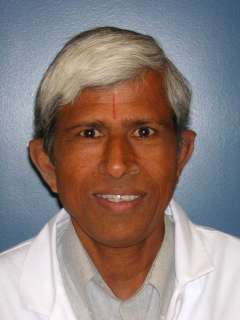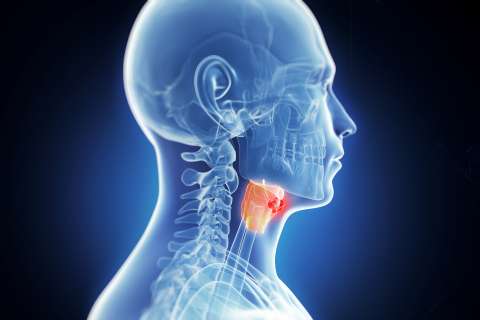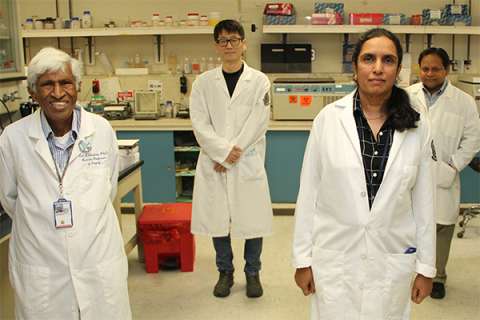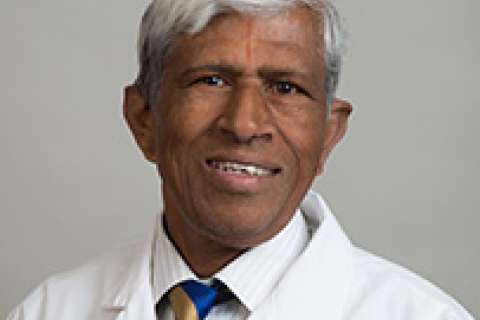
Eri S. Srivatsan, PhD
Languages
Contact Information
Phone
Scientific Interests
Dr. Eri Srivatsan has focused his research on cervical cancer, which is the second most common cancer responsible for cancer-related death in women around the world. The incidence is increasing, with 450,000 new cases diagnosed annually worldwide. The disease is frequently found in women having multiple sex partners, smoking habits and immune system dysfunctions. Although HPVs (Human Papilloma Viruses) play an important role in tumor development, detailed studies have shown that viral infection is not sufficient and additional risk factors, including genomic alterations, are involved. Researchers have now identified a tumor suppressor gene, cystatin E/M, which may be involved in the control of cervical cancer development.
The researchers have previously used microsatellite analysis of cervical cancer cell lines and primary tumors to localize a tumor suppressor gene to a 300kb interval of chromosome 11q13. Of the 11 genes mapped to this 300kb interval, cystatin E/M, a cysteine protease inhibitor, seemed to be a potential candidate due to reports of its involvement in breast cancer. Researchers have now obtained evidence confirming cystatin E/M as the cervical cancer suppressor gene.
Ectopic expression of the gene in the cell lines resulted in cell growth inhibition and apoptosis in vitro and inhibition of tumor growth in vivo in nude mice. Srivatsan's studies further revealed that cathepsin L, a protein overexpressed in several tumors and linked to invasion and metastasis as the physiological target of cystatin E/M.
Finally, silencing of cathepsin L led to decreased cell growth and over expression promoted cell growth. Thus, his results clearly demonstrated that cystain E/M is a cervical cancer suppressor gene and controls cell growth through the inhibition of cathepsin L. His laboratory used lentiviral tetracycline inducible system for the exogenous expression of cystatin E/M and have shown growth suppression in xenograft tumor mice model pointing to suppressor function of cystatin E/M protein. Using the inducible and HPV 16 E6 or E7 or E6 and E7 gene transformed human epidermal keratinocyte system the laboratory has shown non-cell autonomous growth inhibition of the tumor cell lines pointing to the utility of developing this suppressor protein for clinical studies.
Chromosome 11q13 genomic mapping studies have also identified PACS-1 (phosphofurin acidic cluster sorter protein-1) gene as an oncogene. Exogenous expression of PACS-1 into miRNA 34a or 449a transfected cervical cancer cell lines leads to reversal of the DNA damage response (DDR), p53 activation and cell death induced by the two miRNAs. The data has further shown activation of DDR and p53 with the loss of PACS-1 expression confirming a nuclear role for PACS-1 in DNA replication. For the first time, the laboratory has identified a nuclear function for a cytoplasmic transport protein (Nuclear function of cytosolic sorting protein PACS-1. These studies have demonstrated that overexpression of PACS-1 could serve as a diagnostic marker of tumor development and downregulation of PACS-1 through CRISPR/CAS9 system as a therapeutic model for the treatment of chemo-radiation resistant human tumors.
Srivatsan also has an active research program on the molecular mechanism of cisplatin resistance in head and neck cancer. Here, he is trying to determine the role of curcumin, the active ingredient of the Indian spice turmeric, as an adjuvant therapy for head and neck cancer.
Highlighted Publications
Soh H, Venkatesan N, Veena MS, Ravichandran S, Zinabadi A, Basak SK, Parvatiyar K, Srivastava M, Liang LJ, Gjertson DW, Torres JZ, Moatamed NA, Srivatsan ES. Cystatin E/M Suppresses Tumor Cell Growth through Cytoplasmic Retention of NF-KappaB. Mol Cell Biol. 2016 May 31;36(12):1776-92. doi: 10.1128/MCB.00878-15. Print 2016 Jun 15.
Basak SK, Zinabadi A, Wu AW, Venkatesan N, Duarte VM, Kang JJ, Dalgard CL, Srivastava M, Sarkar FH, Wang MB, Srivatsan ES. Liposome encapsulated curcumin-difluorinated (CDF) inhibits the growth of cisplatin resistant head and neck cancer stem cells. Oncotarget. 2015 Jul 30;6(21):18504-17.
Veena MS, Wilken R, Zheng JY, Gholkar A, Venkatesan N, Vira D, Ahmed S, Basak SK, Dalgard CL, Ravichandran S, Batra RK, Kasahara N, Elashoff D, Fishbein MC, Whitelegge JP, Torres JZ, Wang MB, Srivatsan ES. p16 Protein and gigaxonin are associated with the ubiquitination of NFKappaB in cisplatin-induced senescence of cancer cells. J Biol Chem. 2014 Dec 12;289(50):34921-37. doi: 10.1074/jbc.M114.568543. Epub 2014 Oct 20.
Zainabadi K, Jain AV, Donovan FX, Elashoff D, Rao NP, Murty VV, Chandrasekharappa SC, Srivatsan ES. One in four individuals of African-American ancestry harbors a 5.5kb deletion at chromosome 11q13.1. Genomics. 2014 Apr;103(4):276-87. doi: 10.1016/j.ygeno.2014.01.001. Epub 2014 Jan 10.
Kim SG, Veena MS, Basak SK, Han E, Tajima T, Gjertson DW, Starr J, Eidelman O, Pollard HB, Srivastava M, Srivatsan ES, Wang MB. Curcumin treatment suppresses IKKBeta kinase activity of salivary cells of patients with head and neck cancer: a pilot study. Clin Cancer Res. 2011 Sep 15;17(18):5953-61. Epub 2011 Aug 5.
In the News


